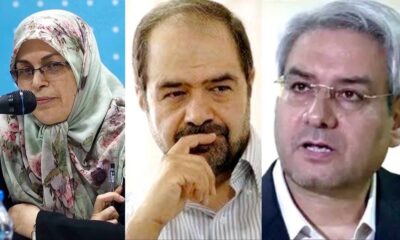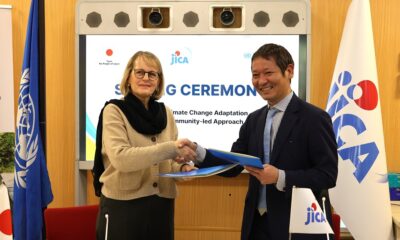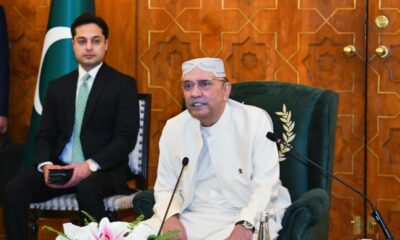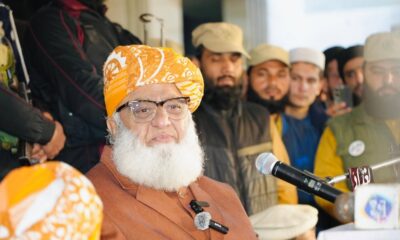Latest News
Khalilzad says a Taliban ruled Afghanistan will become a pariah state
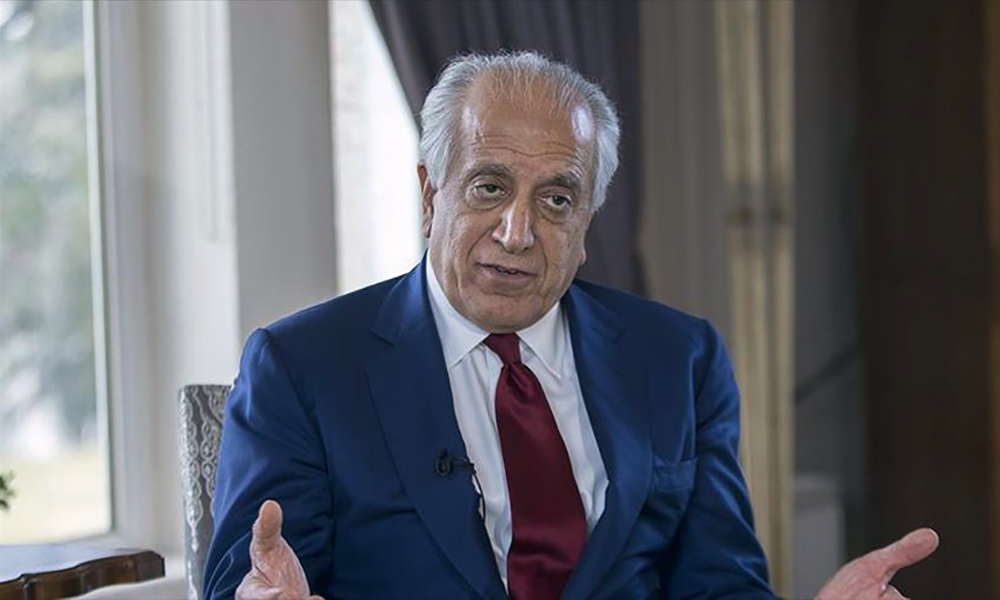
The U.S. Special Representative for Afghanistan reconciliation, Zalmay Khalilzad, said Monday that if the Taliban take over the country by force, they will not win international recognition and “they will become a pariah state.”
Speaking to VOA, Khalilzad said the United States remains committed to promoting a political settlement between warring Afghans, stressing that neither side to the conflict can win militarily.
Asked whether the US has a moral and political responsibility to ensure that Afghanistan does not slide into another civil war, after U.S. military departure, as happened following the Soviet exit in 1989, Khalilzad said “it is a point that we have kept in mind that what happened in the 90s should not be repeated and that working with the Afghans we did something big, a huge sacrifice on the part of the Afghans with our support to get the Soviets out, and then we abandon Afghanistan, and a terrible war took place and it produced challenges particularly in 9/11.
“So, we do not want to repeat that mistake,” he said adding “we have an agreement with the Taliban in principle to depart. But we engaged the Taliban as part of a strategy, a plan to have safe withdrawal of U.S. forces.”
He also said the start of the peace process was part of this strategy.
According to him, the US-Taliban agreement, signed in Doha in February last year, provided the opportunity for Afghans to sit across the table from each other, “a historic development”, to reach an agreement to agree on a formula that would have broad support in Afghanistan and international support as well.
“Unfortunately, the two sides have not taken advantage of that opportunity as quickly as we would have liked, as the Afghan people would have liked,” he said.
He reiterated that there is no military solution to the war and that there must be a “political solution, a political agreement for a lasting peace.”
Khalilzad meanwhile stated that the Afghan government “also has had challenges or difficulties in terms of agreeing to or embracing the idea of a new Islamic government and the Taliban have used force to see if it could coerce the government into agreeing to a formula for a new Islamic government, a new constitution as they see it as well.”
He said in the US’s opinion, the Afghan government cannot get rid of the Taliban, “and the Taliban cannot conquer Afghanistan and have a government that has the support of the overwhelming majority of the Afghans and international support.”
He said while the Taliban tells the US they know there is no military solution, “maybe some Taliban think there is a military solution to the conflict.”
Khalilzad said “the wise thing is for both sides to engage seriously and quickly, urgently to respond to the wishes of the people of Afghanistan for a political agreement.”
He pointed out that history has shown, over the past 45 to 50 years, that attempts by one party to impose its will on the people only leads to war.
“I hope that the leaders of Afghanistan have learned that lesson and that they need to agree to a formula that has broad support, accepts that all Afghans have legitimate rights, that those rights have to be respected and the people have to have a say ultimately in how they are governed.”
ON the gains the Taliban has made in the country in terms of seizing territory, Khalilzad said the Afghan security forces “are numerically far superior than the Taliban. They have over three hundred thousand troops, it has an Air Force and it has special forces. It has heavy equipment and both proper leadership, political and military and proper military strategy and plan and execution.”
However he added “the government forces should have done a lot better than they are doing.”
Khalilzad, who has worked tirelessly to bring the two warring sides together over the past three years, told VOA that he is “concerned very much by the lack of progress. I know that the gap has been large, continues to be a big gap between the two sides, but they need to put the leader or the interests of the Country first, rather than their own interest or their factional interest.”
“There cannot be peace without a compromise, without give and take, without respect for the fundamental rights of all Afghans men and women and the Afghans having a say, ultimately the people and in terms of what happens to them.”
He said the question now is “will these leaders rise to the occasion and put country first or will they go down in history as people who put their own interests or the interests of their faction first”.
In conclusion, Khalilzad touched on Pakistan and its relations with the Taliban.
He said: “Pakistan has a special role and responsibility, given also that many Taliban leaders are in Pakistan, located there, to do what it can to encourage peace and a political settlement as soon as possible, for it will be judged internationally also as to whether it has done all that it can or it could to promote a political settlement.
He said peace in Afghanistan is in Pakistan’s interests and that many Pakistan leaders have acknowledged this.
Latest News
Pakistan president claims situation in Afghanistan is ‘similar to or worse than pre-9/11’’

Pakistan’s President Asif Ali Zardari has warned that the presence of militant groups in the region poses risks to global peace, and repeated Islamabad’s concerns regarding what it describes as the activities of “terrorist organisations operating from Afghanistan.”
Zardari made the remarks in a statement issued Sunday, as he thanked world leaders for expressing solidarity with Pakistan following the recent attack on an imambargah in Islamabad, which left dozens dead and many others wounded. The incident was claimed by Daesh militant group.
According to the statement from the President’s Secretariat, Zardari said Pakistan remains committed to combating terrorism and stressed that no single country can address the threat alone.
“Pakistan has long maintained that terrorism cannot be confronted by a single country in isolation,” he was quoted as saying.
Citing Pakistan’s experience, he said in the statement that whenever “terrorist groups are allowed space, facilitation or impunity beyond national borders, the consequences are borne by innocent civilians all over the world.”
Zardari further claimed that the situation in Afghanistan under the Islamic Emirate authorities has created conditions “similar to or worse than pre-9/11,” and said this has influenced security developments across the region. IEA has repeatedly rejected such allegations, insisting that Afghan soil is not used against any country.
Latest News
Fazlur Rehman: Afghanistan’s economic situation is better than Pakistan’s
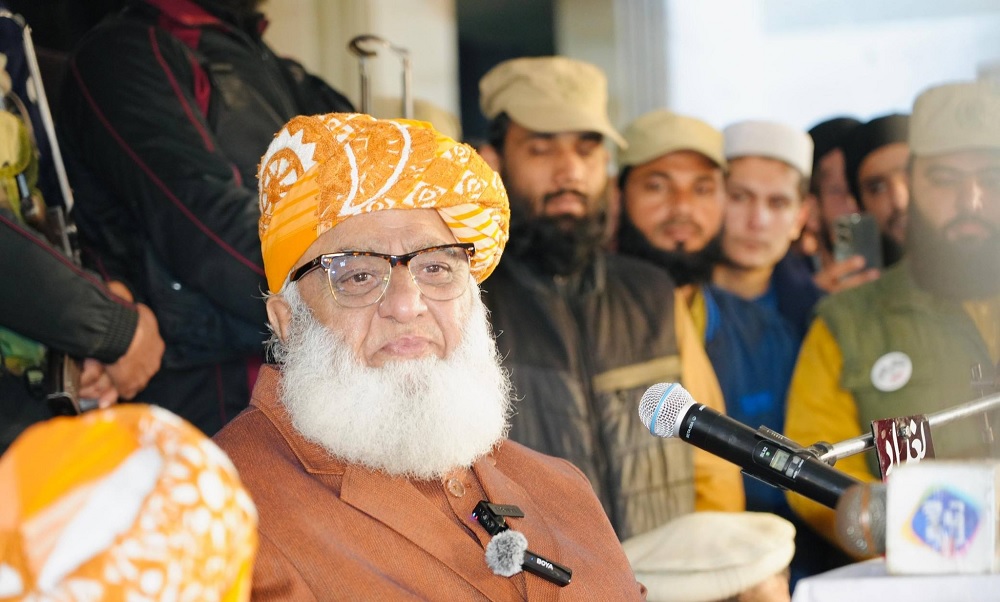
Maulana Fazlur Rehman, the leader of Pakistan’s Jamiat Ulema-e-Islam (JUI-F), has said that Afghanistan’s economic situation has become better than Pakistan’s, as Pakistan faces deepening financial hardship and increasing emigration.
Speaking at a gathering in Rawalpindi, Fazlur Rehman warned that business activity in Pakistan is collapsing and that many Pakistanis are leaving the country in search of stability. He sharply criticized Islamabad’s policies toward Afghanistan, describing them as “complete failures.”
Addressing Pakistan’s repeated claims that militants enter from Afghan territory, he said: “Authorities say terrorists are coming from there. If they are coming, stop them. If they are coming, eliminate them. The Afghan government has never objected to your actions.”
He also rejected the logic behind these allegations, pointing to the closure of key crossings between the two countries: “When not even a single pomegranate can enter Pakistan from Afghanistan today, how can militants enter?”
Fazlur Rehman argued that Pakistan’s foreign policy is shaped not by the civilian government, but by the military establishment: “One general comes and says we will negotiate; another comes and says we will wage war.”
Pakistani officials have long claimed that attacks inside Pakistan are planned from Afghan soil. The Islamic Emirate of Afghanistan has consistently denied this, saying Afghanistan cannot be blamed for Pakistan’s internal security failures.
Latest News
Tajik foreign minister urges international community to help Afghanistan address its challenges

Tajikistan’s Minister of Foreign Affairs, Sirodjiddin Mukhriddin, has called on the international community to step up assistance for Afghanistan as the country continues to face challenges.
Speaking at a press conference, Mukhriddin said Tajikistan and Afghanistan maintain active coordination between their law enforcement agencies to prevent security incidents along their shared border. He noted that this cooperation remains essential, as the frequency of armed attacks and criminal activity in border regions has increased in recent months.
He said that Afghan authorities had assured Tajikistan they would take necessary measures to stop further incidents and would conduct thorough investigations into any violations.
Mukhriddin emphasized that Tajikistan supports constructive international engagement aimed at improving Afghanistan’s socio-economic conditions. He highlighted that Tajikistan has provided more than 6,000 tons of humanitarian aid to Afghanistan, including food and essential supplies delivered in 2025 to assist communities affected by devastating earthquakes.
The minister also pointed to growing economic cooperation between the two neighbors. Tajikistan has reopened border markets and continues to supply electricity to Afghanistan.
Tajikistan and Afghanistan share a border of more than 1,300 kilometers—over 1,100 km of which consists of waterways and about 190 km of land boundaries.
Meanwhile, Zafar Samad Director of the Drug Control Agency under the President of the Republic of Tajikistan, has said that last year, 17 incidents of clashes happened with drug smugglers along the border with Afghanistan. As a result, two Tajik forces and 10 Afghan nationals have been killed, he added.
-

 Latest News2 days ago
Latest News2 days agoAfghanistan to grant one- to ten-year residency to foreign investors
-

 Latest News4 days ago
Latest News4 days agoTerrorist threat in Afghanistan must be taken seriously, China tells UNSC
-

 Latest News5 days ago
Latest News5 days agoUzbekistan, Pakistan advance Trans-Afghan railway project
-

 Sport5 days ago
Sport5 days agoWinter Olympics finally underway, ATN to broadcast exclusively across Afghanistan
-

 Sport5 days ago
Sport5 days agoAfghanistan beat West Indies in final T20 WC warm-up match
-

 Sport3 days ago
Sport3 days agoIndonesia shock Japan to reach historic AFC Futsal Asian Cup final
-

 Sport4 days ago
Sport4 days agoMilano Cortina 2026 Winter Olympics: What You Need to Know
-
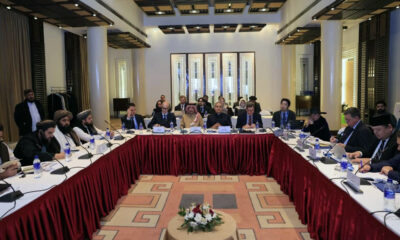
 Latest News5 days ago
Latest News5 days agoAfghanistan hosts 4th Doha Process Counter-Narcotics Meeting, highlights progress


